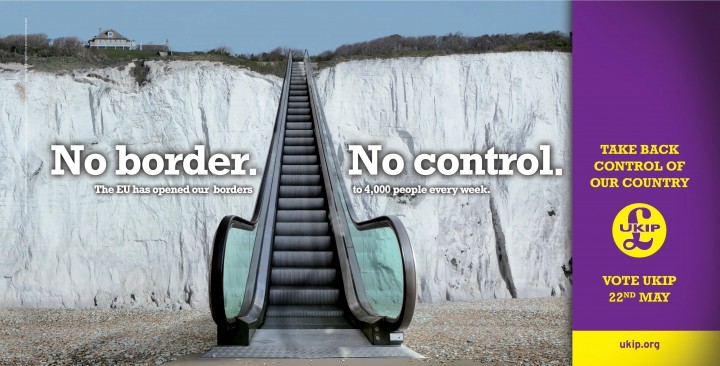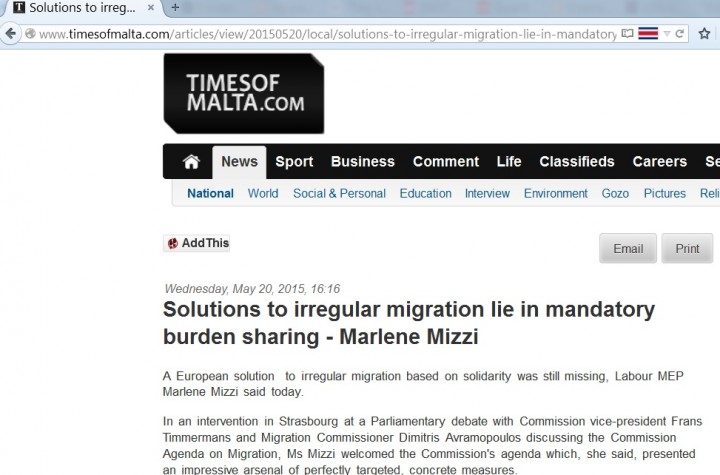“Whatever mourns when many leave these shores;
Whatever shares
The eternal reciprocity of tears.”
– Insensibility by Wilfred Owen (October 1917)
Wilfred Owen’s poem dwells on the insensibility of civilians to the suffering of the soldiers in the trenches of the First World War. He condemns those who fail to feel for those suffering the inhumanity of warfare and the particular horrors of trench warfare.
Sensibility to the suffering of other human beings is certainly an important component of our common humanity. It is a necessary precondition to act and to achieve change. And yet it is important to move beyond tears.
I was recently reminded of this when visiting an accommodation centre for migrants with a group of students. All of us were naturally struck by what we saw and the stories we heard. Some were moved to tears.
But are tears enough when dealing with the stories of migrants and refugees? I argue that it is not.
Meeting face to face with stories of human suffering and also, let us not forget, human strength, is naturally a moving experience. Insensibility to such stories is inhumane. But what is required in the face of these experiences is action coupled with an understanding of the factual and legal realities.
Facts and Law
 Poster: controversial UKIP poster promoted during May 2014 European Elections in UK. via UKIP website.
Poster: controversial UKIP poster promoted during May 2014 European Elections in UK. via UKIP website.
The facts about migration are not being presented accurately or even fully. The impression that is prevalent in the European public consciousness is that Europe is being ‘invaded’ by migrants; specifically migrants from Africa and the Middle East.
The facts show something substantially different. In my country, the small Mediterranean island-state of Malta, the general opinion is that Malta cannot cope with the large number of migrants arriving by boat from North Africa.
The reality shows something different.
Arrivals on boats in Malta in 2014 amounted to 568. Of the 19,000 people who arrived in Malta in this manner since 2002 less than 30% remain in Malta to date. This amounts to less than 6000 people. Even in relation to Malta’s small population this is hardly a significant number.
This becomes even clearer when one compares the numbers of refugees that other countries have had to deal with. Jordan, for example, currently hosts 628,160 refugees from Syria alone. This is without taking into account other refugees which Jordan hosts.
It is worth pointing out that 86% of the world’s forcefully displaced persons are hosted in developing countries, based on figures from the UN Refugee Agency.
These facts are generally unknown to European public opinion. Knowledge of and debate around these figures could lead to some sense of proportion entering the public consciousness about migration.
Another matter which needs to be brought into the public consciousness is that there are international legal rules that countries should abide by. Refugees, for instance, are granted special status under international law as persons fleeing persecution in their own countries.
Other migrants have been forced to move because of breaches of their human rights that are supposed to be protected by international law in seminal instruments such as the Universal Declaration of Human Rights, the Convention Against Torture or, in the case of Europe, the European Convention on Human Rights.
These rules, developed over many decades, were made to protect human dignity for everyone. If we are willing to set aside such rules we are in breach of our legal obligations and others may then do the same with respect to our rights.
More fundamentally, we would be arguing that human rights rules should benefit us Europeans but not others. What does this say about the kind of society we have become and the kind of people we are?
It is also striking that in recent news reports and debates there is virtually no reference to the benefits that may derive from migration.
A 2014 World Bank report states that:
“International migration boosts world incomes. By allowing workers to move to where they are more productive, migration results in an increase in aggregate output and income”.
These are not kind of facts deemed newsworthy that we tend hear about from politicians or in the media.

Politicians and the media are chiefly to blame for the lack of engagement with the facts, as I’ve mentioned above. Their lack of leadership, their failure to expose facts and their use of language has contributed to the lack of positive public engagement with the issue of migration.
Politics and Language
“We are not racist. It’s not the colour of their skin that we’re worried about. Malta simply doesn’t have enough resources to continue dealing with flows of illegal immigration.
“Also, some of the immigrants might be infected by some sickness or come from a terror group.”
“Our Maltese identity is under threat, not only from illegal immigrants but from European ones too. We live in Malta. Why should we have to speak English to a foreign waiter when we go out to eat?”
– Alex Pisani from the organisation Ghaqda Patrijotti Maltin (Organisation of Maltese Patriots) as reported in Malta Today (September 28, 2014).
Politicians and the media’s choice of words is a crucial aspect of how the public views migrants. The use of terms like‘illegal migrants’ and ‘clandestine’ in media and official discourse is especially reprehensible.
The definition of persons arriving in a country as ‘illegal’ or ‘clandestine’ has strong connotations of criminality. Often, these unauthorised arrivals include large proportions of people who are seeking asylum and thus under international law rules cannot be deemed to have committed a criminal offence.
The generalised criminalisation of persons escaping from a variety of human rights abuses is a grave breach of the 1951 Refugee Convention.
Other instances of a reprehensible use of language are the recent attempts to give the impression that the migratory flows and deaths across the Mediterranean Sea can be resolved through a ‘war on smugglers’.
The world has already witnessed the realities that hide behind phrases such as ‘war on terror’ or ‘collateral damage’.
Destroying the boats used by smugglers would only constitute, in the very best scenario, a temporary blow to the smugglers but would not address the root causes of the boat crossings. In the worst case scenario such a ‘war on smugglers’ would prevent the only avenue available to people fleeing from the conflicts raging in Syria or Libya or elsewhere.
The real problem is the lack of legal avenues for people to enter the European Union. Destroying the smugglers’ boats does nothing to deal with the real need of people to travel.
Public Consciousness and Action
The debates around facts, law, politics and language briefly alluded to above are largely absent from public consciousness and debate.
Within European societies we need to foster this debate. As voters, as consumers, as citizens we have an obligation to take part in this discussion and a right to expect politics and media outlets to respond accordingly.
Finally, when faced by migrants seeking the protection of their human rights or refugees fleeing persecution what is an appropriate response?
I suggest that sensibility to their, often harrowing, stories is a human and humane reaction. But such sensibility is useless if it fails to translate into action and change.
Concerted citizen action is usually not agitated by tears and sadness but rather by a sense of urgency and even by a sense of anger at injustice. Such action might go some way towards meeting the needs of the migrants and refugees. It could also improve our own lives through the benefits which migration brings and through having a freer, more diverse and more humane society.
If we fail in this, tears shed when meeting the suffering of migrants are not only useless but also offensive.

